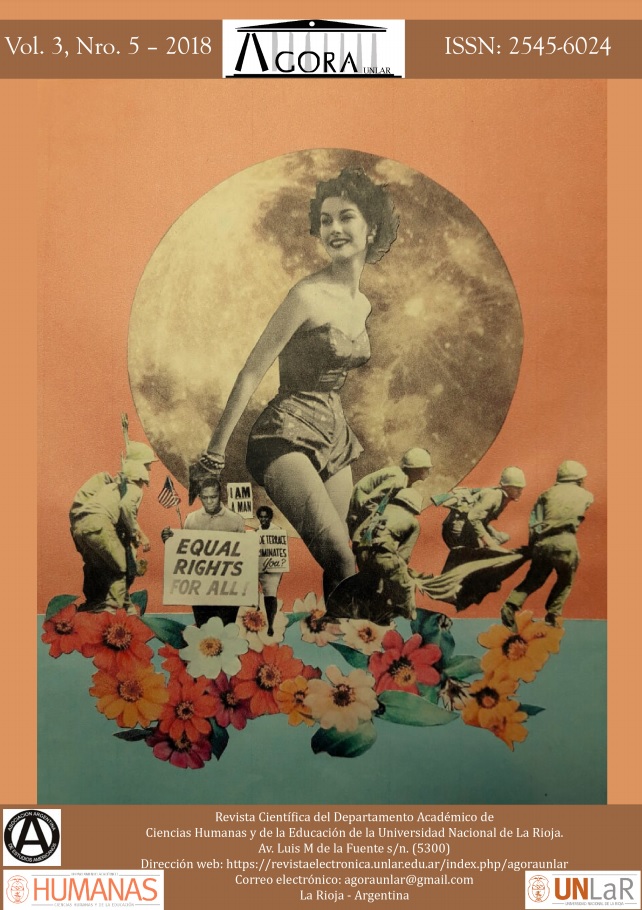POESÍA Y POETAS EN EL CINE
Palabras clave:
poesía, cinematografía, biografía, estética, lectura, punto de vistaResumen
En coincidencia con la aparición de dos films sobre la vida de dos grandespoetas estadounidenses, Emiliy Dickinson y William Carlos Williams, vamosa trabajar sobre la representación de la poesía, hoy, en el cine, teniendo encuenta la complejidad de la decodificación del género lírico. En esta ponenciaquisimos preguntarnos por el lugar que ocupa la poesía de Emily Dickinsonen la película A quiet passion de T. Davies y la de William Carlos Williams,en Paterson de J. Jarmusch. ¿Qué concepción de poesía transmite cadauna de estas películas? ¿Cómo trabajan el objeto poético? ¿Qué eligieronmostrar de cada poeta estos directores? ¿Qué conclusiones o interrogantesdespiertan en el espectador? La hipótesis que dejamos abierta para seguirpensando es que en el film de Davies la poesía se lee desde la vida de laautora, y lo poético se traduce en imágenes que no pretenden retomar laestética de la poeta; mientras que en el film de Jarmush, la poesía de W.C.W.aparece fecundando la vida del protagonista, al tiempo que su poética esretomada por la estética del film. POETRY AND POETS IN THE CINEMA ABSTRACTIn coincidence with the appearance of two films about the life of two greatAmerican poets: Emiliy Dickinson and William Carlos Williams, we are goingto work on the representation of poetry, today, in the cinema, taking intoaccount the complexity of the decoding of the lyrical genre. In this paper wewanted to ask ourselves about the place occupied by the poetry of EmilyDickinson in the film A quiet passion by T. Davies and that of William CarlosWilliams, in Paterson by J. Jarmusch. What conception of poetry does eachof these films transmit? How does the poetic object worked? What did thesedirectors choose to show from each poet? What conclusions or questionsawaken in the viewer? The hypothesis that we set open to continue thinkingis that in Davies’ film poetry is read from the author’s life, and the poeticis translated into images that do not intend to retake the poet’s aesthetic;whereas in the Jarmush film, the poetry of W.C.W. appears fecundating thelife of the protagonist, while his poetics is assumed by the aesthetics of thefilm.Keywords: poetry; cinematography; biography; aesthetics; reading; point of viewDescargas
Publicado
31-10-2018
Número
Sección
ARTÍCULOS DE INVESTIGACIÓN O REVISIÓN TEÓRICA





